It is only at first glance the work of the forwarder is simple. In fact, you will have to deal not only with trips from point A to point B (and this is far from mandatory), but also with all the documentary support of a cargo, working with clients and many other things related to logistics. But, as in any activity, there are problems of their own. Who is responsible for the difficulties encountered during the transportation of goods? What should the forwarder do if damage occurred during delivery? And what could he face for the poor quality of services?
Functional responsibilities
Perhaps, one should start with who the freight forwarder is. Forwarder is a person on whose shoulders lies the responsibility for the full support of the transportation of goods. It all starts with the fact that the specialist prepares all the necessary documents, selects the transport suitable for transportation, makes sure that it is reliable, forwarders sometimes even during transportation monitor the condition of the transported! Any, even the most minimal problems with the cargo are the forwarder's fault, which is why he carefully checks the condition of the cargo before sending it and before receiving it by the customer.

In order to become a freight forwarder, you must be a very responsible person. The slightest mistake can cause damage to the goods, and the accompanying person has to cover all the losses from his pocket. Efficiency will also be useful: the faster the order for transportation is completed, the greater the likelihood that the customer will turn to this forwarder again, and not to the one who will delay the time. Punctuality is another useful quality, however, it can be combined with efficiency. Not a single forwarder can work well without the ability to navigate the terrain (especially if he not only accompanies the goods, but also carries them directly). A good memory and attentiveness will help to avoid delivery errors, and also allow you to timely eliminate any troubles that arise during transportation. And, of course, the forwarding agent cannot do without sociability - he constantly has to work with people, so the ability to find a common language with a variety of customers will definitely play into his hands.
Forwarding driver
It was already mentioned a little above that sometimes the forwarder himself can be engaged in transportation, in which case he is called the forwarding driver. Those who decide to try themselves in that field will not have enough corresponding higher economic education. We’ll also have to study a foreign language in order to negotiate abroad without problems, and the basics of customs law, which will allow us not to depend on outside lawyers, but to independently understand all the intricacies of international transport. About the mandatory presence of a driver's license category B and above is not worth talking at all.
Does the responsibility of the forwarding driver differ from that of the ordinary specialist? If so, with what?
Interdependence
The main legislative act that regulates the work of the forwarder is Art. 803 of the Civil Code of the Russian Federation on liability under a transport expedition agreement.According to this article, if the forwarder in any way violates the contract concluded by him with the customer, then he bears first and foremost material liability.
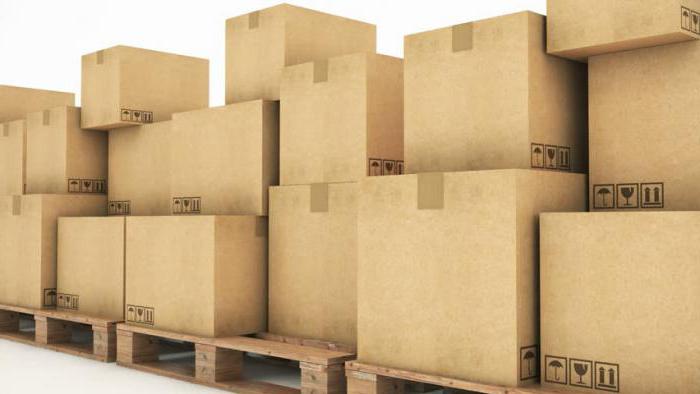
At the same time, if a specialist can prove that the fault lies not with him, but with the carrier (if, of course, they are different persons), the form of responsibility of the forwarder changes: he is responsible to the client to the same extent as the driver to him.
Forwarder's authority
The forwarder is responsible to the client for the most accurate implementation of the terms of the agreement concluded between them. However, if it becomes necessary to make some changes to these very conditions, and the specialist cannot contact the client in order to clarify whether these same changes are possible, or if he has not received a client’s answer to this question, then the client is notified of all changes already in fact.
A freight forwarder receives a power of attorney from his client to perform actions on his behalf. The specialist concludes all the necessary agreements, then providing the customer with the original contracts. The forwarder is obliged to provide his client with all the information regarding the contracts concluded on his behalf, otherwise he will violate the law on the protection of consumer rights.
Offensive liability
The responsibility of the forwarder for the safety of the cargo is fixed in his contract with the client. In the event that for some reason the transported was lost, damaged or not delivered in full, the specialist will have to answer according to the law on forwarding activities.
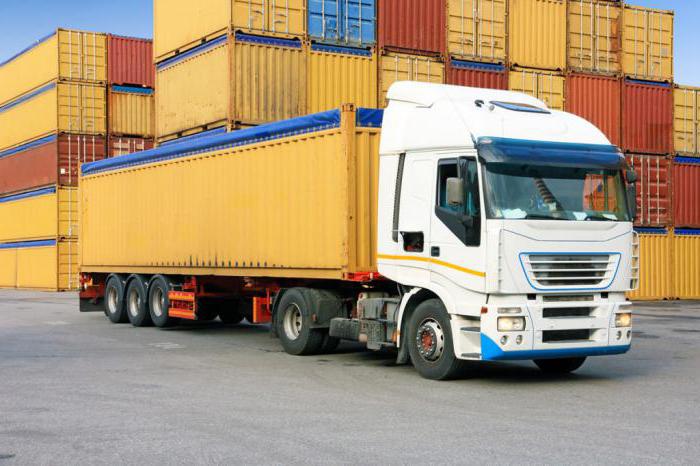
The same law applies to cases in which delivery deadlines have been violated. It is worth noting that if the contract concluded between the forwarder and his client spells out penalties for violating the terms of the contract that are different from those proposed by the aforementioned law, then the forwarder will be held liable under the terms of the contract. Typically, such liability is greater than prescribed by law. The freight forwarder must be punished within a calendar year from the date the customer sues him.
Compensation
The responsibility of the forwarder for the loss of cargo, its damage or untimely delivery thereof occurs only in case of proven fault. If during the trial it was established that the forwarder could not prevent the problems, that is, they are the result of an unsuccessful set of circumstances, then liability does not occur. In other cases, the specialist covers the real damage caused to the client by his actions.
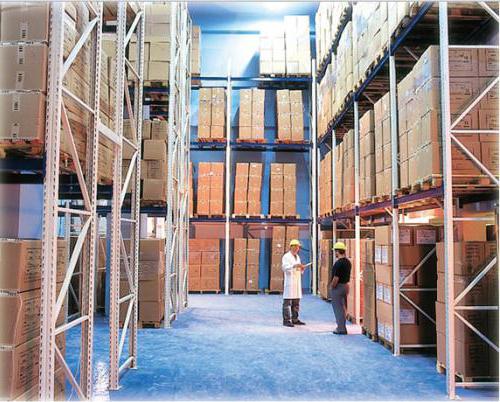
Typically, when concluding contracts, the client indicates the declared value of the goods transported. In the case of violation by the freight forwarder of obligations under the contract that entailed the loss or damage of the freight, the freight forwarder is obliged to return either its full value or an amount proportional to the missing part of the freight. If the declared value of the transported is unknown (that is, the client has not indicated it anywhere), then the actual (confirmed) value of the cargo will have to be returned. In order to establish this real value, either the customer’s accounts are used, where the value of the cargo at the time of its sale or purchase (or production) is fixed — it all depends on where the customer received this cargo from, or the market price is taken similar to the goods.
In addition, the responsibility of the forwarder in such cases implies the return of the remuneration that the forwarder took for his services. True, in the event that this remuneration is included in the amount of the cost of the goods, then it will not have to be returned: the forwarder will pay it in the form of compensation.
Delayed Delivery
The freight forwarder's liability for delay in delivery of the cargo occurs if he cannot prove that the delay was not due to his fault, but because of force majeure.Otherwise, the carrier is obliged to reimburse all losses caused by the delay.
If the client is an individual, that is, freight was not carried out for further entrepreneurial activity, then for each additional day (or hour, if indicated in the contract, even if delivery was delayed only for a few hours when it comes to paid day , the freight forwarder will have to compensate for the delay in a whole day), the specialist pays a fine in the amount of 3% of the cost of the goods (though this amount should not exceed 80% of the remuneration paid to the forwarder for his services) in as a fine.
Third party involvement
There is such a thing as the full liability of the forwarding driver. That is, in case of any problems with the cargo, the carrier will be responsible. Everything is clear here: the forwarder can influence the delivery time, its conditions and other aspects that are in the competence of the driver. Therefore, his responsibility for everything related to a specific transportation is easily explained.
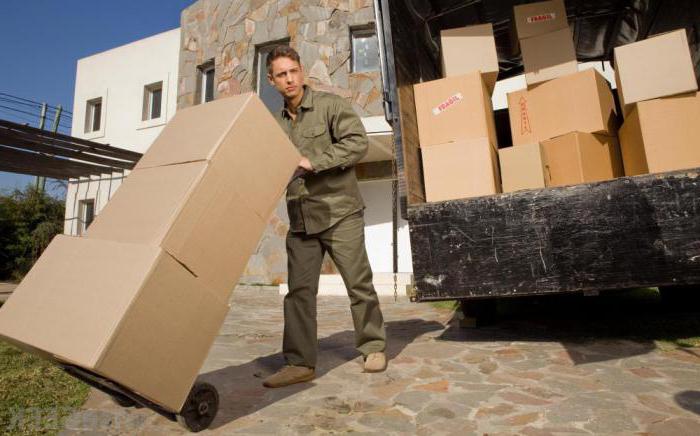
But even if the forwarder hires a third-party driver, he still retains his responsibility to the customer. Even if the problems are caused by the actions of the carrier, the forwarder will still be to blame. At the same time, the driver is still liable to the forwarder, so that he will be punished if something happens. It is worth noting that there are a number of situations in which the carrier's liability is much less than that of the forwarder, or even completely absent.
For example, if the driver has delayed the delivery of the goods, then he will pay only the penalty, without compensating for the losses that he caused by the delay. In the same situation, the forwarder is obliged to pay both the amount of losses and the penalty forfeit.
Customer Responsibility
The responsibility of the forwarder to the customer remains throughout the entire process of delivery of the goods (from the moment of conclusion of the contract for the provision of services to the moment of signing the acceptance certificate). But the client himself is responsible to the specialist. He is obliged to provide all the necessary and, most importantly, reliable information about the place of dispatch of the cargo, the point of its delivery, the dimensions of the cargo, its value and so on. In addition, by signing the contract, the client assumes obligations for the timely payment of freight and freight forwarder services.
Claim
The forwarder’s liability agreement allows the client to initiate legal proceedings in case of failure to comply with the delivery time, delivery of the goods not fully loaded, in improper condition or even at all in full. True, you will have to start with the presentation of claims (in the case when the client is an entrepreneur. A private person can immediately write a statement of claim). Claims can be made within six months from the moment when the client receives such a right. And this period varies depending on the violation committed by the forwarder:
- Compensation for losses incurred in case of loss, shortage or damage to the goods - from the day following the day the goods were issued.
- Compensation for losses caused by the violation of the deadlines for fulfillment of obligations - from the day following the expiration of the contract (unless otherwise specified otherwise).
- Any other violations - from the day when the client, the recipient of the goods or any third party has received information about this violation.
Lack of responsibility
Separately, I would like to stipulate cases when the forwarder's liability does not occur. As already mentioned above, if the problems with the delivery of the cargo or its packaging were caused by force majeure, then neither the carrier nor the forwarder (if they were different persons) will be responsible for this.In addition, even in the event of a delay, if there is no corresponding clause in the contract between the client and the forwarder, the latter will not be liable, therefore, customers who have a principle in time for delivery of goods should pay attention to such subtleties.
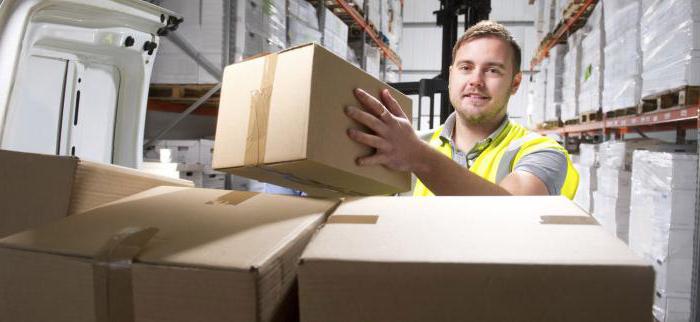
As for the interaction of the forwarder and third parties, it is worth noting that he is not responsible for what the representatives of state bodies do (for example, under customs, sanitary, environmental and other types of control). Moreover, if third parties associated with the cargo transportation process were informed by the forwarder about the features of this cargo, about the rules for handling it, in case of any problems with this cargo, it will be these people, not the forwarder, who will answer: details of the cargo, he disclaims responsibility for the actions of third parties.
It is too late to talk about any responsibility of the forwarder if the client has not filed a claim against him within the time period specified by law.
Customer fault
Work as a forwarder, as mentioned above, is constantly fraught with great responsibility. Inattention, neglect of one's duties can be very expensive for a specialist. But still there are a number of cases where even in the event of damage to the cargo or violation of the conditions of its delivery, the forwarder will not bear any responsibility.
For example, if the client himself made a mistake, for example, indicated the wrong place of delivery or provided an incomplete set of documents for the goods, of course, the fault for the error will fall on him, and not on the carrier. Any manipulations with the cargo performed by the client himself, for example, loading him into the forwarder’s vehicle or a person acting on his behalf, are also beyond the responsibility of the latter. In the event that the customer did not pack his goods properly, only he will be guilty (however, this rule will not work if, under the contract, the forwarder was still obliged to pack). The client is obliged to inform the forwarder or his representative about the characteristics of the cargo: its danger (for example, when transporting chemicals), value (delivery of antiques), vulnerabilities (especially fragility, as is the case with glass), susceptibility to deterioration (rotting food); if he did not warn the carrier about such special properties of the transported cargo, then the forwarder is not responsible. In addition, force majeure circumstances also do not fall under the liability that such freight transportation implies.
Arbitrage practice
One of the main problems that the freight forwarder's civil liability entails is the lack of the presumption of innocence: the carrier must prove that he did not violate the contract concluded between him and the client, and not the investigation should find evidence of his guilt. In the event of claims, there are very few chances of proving innocence: the carrier’s actions may be exempted from the carrier’s liability, which entailed problems with the cargo, providing the client with deliberately erroneous information, and force majeure. At the same time, in judicial practice, each statement of claim is considered separately - there is no generally accepted model for conducting such cases.
Trial example
For example, if the cargo was found to be lost (and this happens 90 days after the contract expires), the carrier-forwarding agent will be liable if it is proved during the trial that he could prevent the cargo from disappearing. For example, in the case when the fact of theft of this cargo was established, if the forwarder could interfere with illegal actions, but did not do this (suppose he left the car open for a while with the ignition key in the lock, which made it possible to steal the vehicle and steal the cargo in it), he is found guilty of violating his obligations under the contract. When the carrier has taken all the necessary transportation safety measures and cargo protection measures, but the latter was stolen anyway, the forwarder will not be guilty.
Insurance
It is worth noting that freight transport, carried out with the involvement of the forwarder, is sometimes associated with the movement of particularly valuable goods. Therefore, customers prefer to ensure the safety of their property through insurance. Insurance helps to provide compensation in connection with the loss of cargo or causing harm to it, in addition, forwarders who have insurance contracts, customers trust much more.
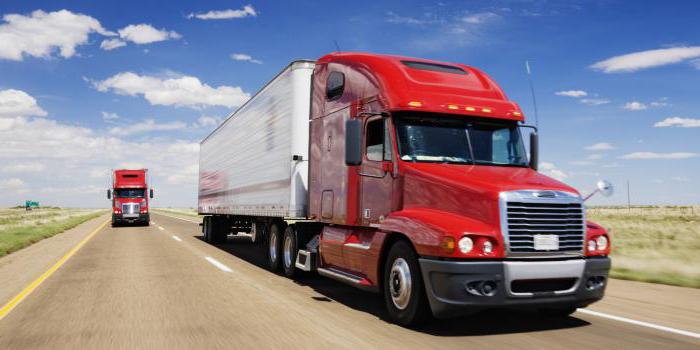
On the other hand, insurance companies will not cover losses associated with the transportation of illegal goods or the transportation of goods with special value (securities, currencies, and so on). If the packaging of the cargo was damaged during delivery or any seals were broken, this also does not apply to insured events. Using vehicles in an improper condition for transportation is the responsibility of the forwarder, but not the insurers. Losses caused by deliberate careless handling of the goods by either the client or the carrier (shipping glass without special packaging) are not compensated. And, of course, the money lost as a result of the impact of force majeure circumstances on the cargo will not be returned.
Insurance case
If the forwarder finds out that an insured event has occurred, he is obliged to inform his insurance company or its intermediary about this. In addition, if the carrier understands that the insured event is the result of unlawful actions, he must inform the relevant law enforcement authorities about this. If it is not too late, the forwarder must ensure the preservation of the goods.
In the case when the carrier transferred the goods to a person who did not have special documents that gave him authority to receive this cargo, all responsibility lies with the forwarder. If fake documents were used, that is, there was a fraud, insurance will still cover the client’s losses.
It is worth noting separately that if the forwarder hired third parties (drivers, for example) to fulfill his obligations under the contracts, and the blame for the damage caused to the client fell on their shoulders, then all compensations to the client are paid by these individuals, and not by insurance companies.
Conclusion
It seems that the freight forwarder’s liability may occur when he violates the terms of the contract. Legislatively the way it is. But at the same time, there are a number of points that will help the carrier to avoid punishment for untimely delivery of goods or delivery in poor condition or incomplete configuration. The main thing is to know your rights, and not just duties, this will help to correctly assess the possible responsibility.